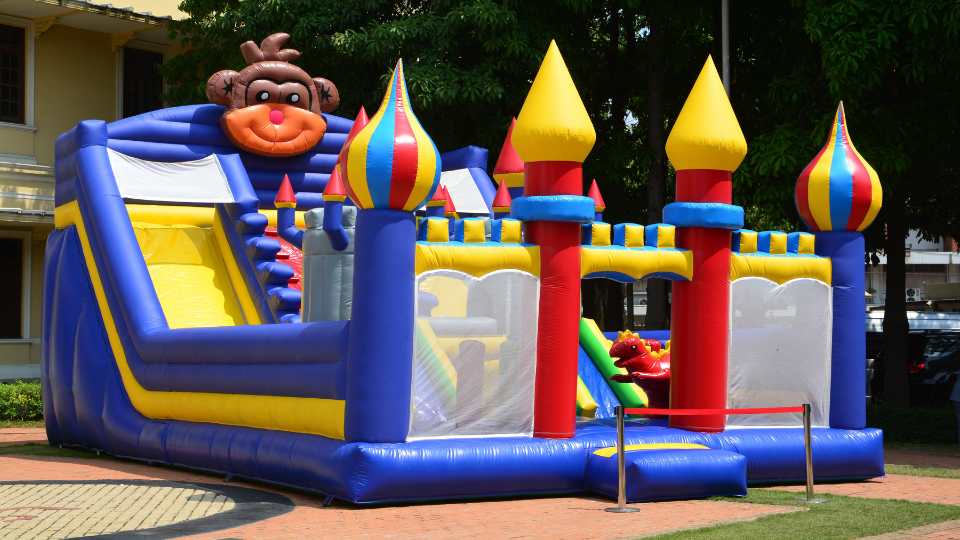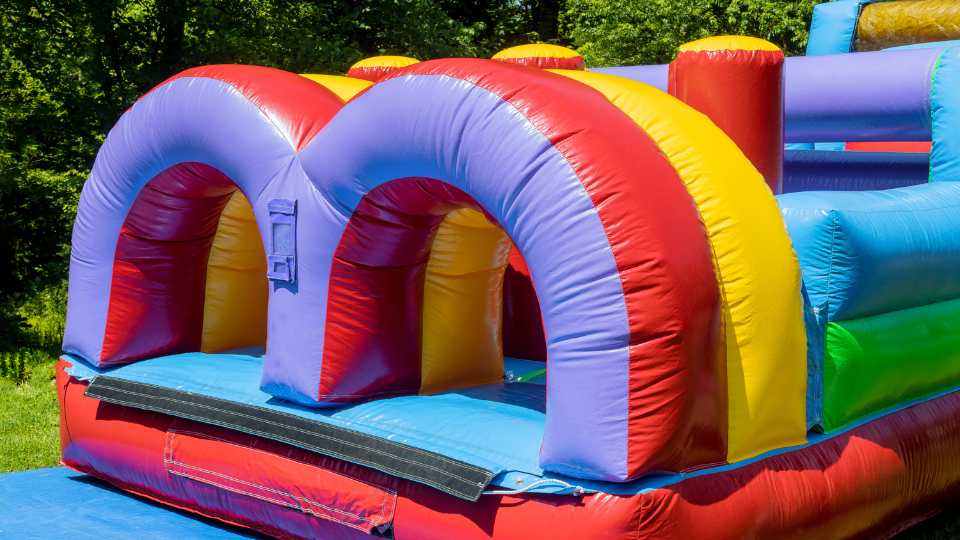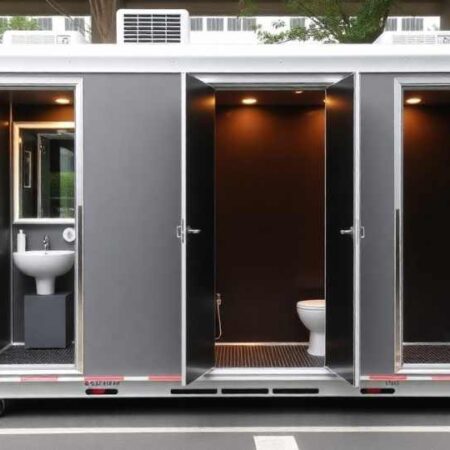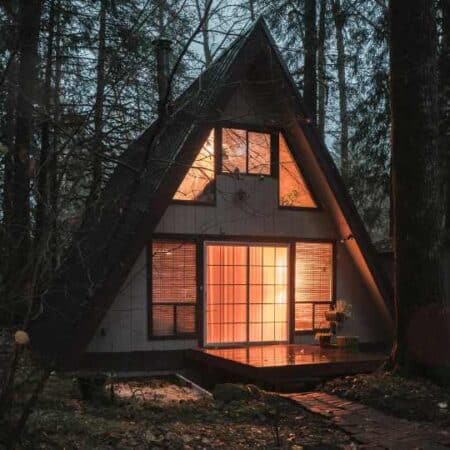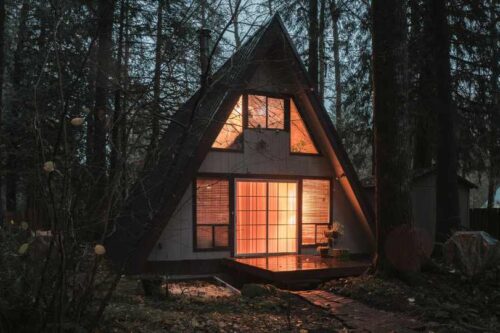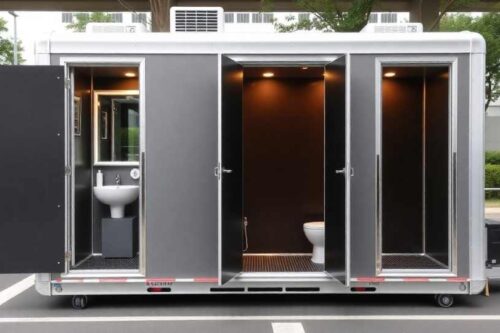Starting a bounce house business presents not only an exciting opportunity with significant potential for enjoyment and profitability.
This guide outlines essential steps, beginning with conducting market research to assess demand and competition, followed by the development of a comprehensive business plan.
It will address necessary legal considerations, including the acquisition of permits and insurance, as well as guidance on selecting the appropriate equipment.
Additionally, effective marketing strategies to engage your target audience and best practices for managing finances will be examined.
Explore this guide to understand how to start a bounce house business and transform your aspiration of operating a bounce house business into a successful reality.
What is a Bounce House Business?
A bounce house business represents a lucrative entrepreneurial opportunity that specializes in the rental of inflatable equipment, offering a wide variety of party supplies suitable for numerous occasions, including birthday celebrations and community events.

This business not only serves to entertain children but also plays a significant role in event planning by facilitating the creation of memorable experiences. A comprehensive understanding of the fundamentals of this industry can lead to sustainable growth and profitability in a competitive market.
Plus traditional bounce houses, these enterprises may provide a diverse array of inflatable attractions, such as obstacle courses, water slides, and interactive games, which cater to both children and adults. By participating in local fairs and festivals, they contribute to community engagement, establishing themselves as a cherished component of neighborhood events.
This industry not only enhances social experiences but also encourages physical activity and outdoor enjoyment.
As event planners increasingly seek distinctive elements to enhance their celebrations, inflatable rentals offer an accessible and engaging option, enabling hosts to provide an unforgettable experience for their guests.

Market Research and Planning
Conducting comprehensive market research and strategic planning is essential for the success of any bounce house business. This process facilitates the identification of startup costs, competition, and the target audience.
Such a methodical approach not only aids in assessing market demand but also informs pricing strategies, enabling entrepreneurs to adapt effectively to prevailing market conditions.
Key Questions:
- What types of inflatables are popular in your region?
- What are the average rental prices?
- What marketing strategies do competitors use?
Assessing Demand and Competition
Assessing demand and competition is a crucial step in establishing a bounce house business, as it provides valuable insights into market trends and the preferences of the target audience. This assessment not only identifies potential customer bases but also reveals gaps in the market, allowing businesses to position themselves effectively.
Employing comprehensive methods such as surveys can be particularly advantageous, enabling operators to gather first hand feedback from potential clients regarding their preferences and expectations. Complementing this approach with online research—such as analyzing social media trends and customer reviews—offers a broader understanding of successful practices within the industry.
Engaging with the community through local events or forums can further enhance insights into the entertainment options that families desire. Utilizing these methods collectively contributes to a clearer understanding of current demand, as well as identifying emerging opportunities within the bounce house market.
Creating a Business Plan
Developing a comprehensive business plan is crucial for the success of any bounce house enterprise, as it delineates financial projections, marketing strategies, and operational workflows. This document acts as a strategic roadmap, guiding entrepreneurs through the complexities of establishing and managing their businesses while addressing critical elements such as cash flow and competitive positioning.
Plus outlining the foundational aspects, the plan must explicitly define target audiences and their preferences, ensuring that the services offered resonate with potential customers.
Incorporating effective promotional techniques, such as social media outreach and community collaborations, significantly enhances visibility and attracts bookings.
Moreover, detailing the logistics of equipment procurement, maintenance schedules, and safety protocols not only promotes operational efficiency but also fosters trust with customers.
Lastly, addressing financial feasibility—comprising startup costs and pricing strategies—completes this essential planning tool, enabling aspiring business owners to strategically position themselves within this dynamic and expanding market.
Legal Considerations
Navigating the legal considerations of a bounce house business is essential for ensuring compliance and achieving operational success. This includes understanding licensing requirements, obtaining necessary permits, and addressing insurance needs.
Adherence to safety regulations and local laws is not only a legal obligation but also a critical factor in building trust and credibility with clients. 
Permits and Licenses
Obtaining the necessary permits and licenses is essential for the operation of a bounce house business, as it ensures compliance with local regulations and legal requirements for business registration. The specific requirements may vary by location, highlighting the importance of thorough research and adherence to local laws to avoid penalties and operational disruptions.
Depending on the jurisdiction, business owners may be required to secure permits for inflatable rentals, undergo safety inspections, and acquire liability insurance for their inflatable units. The process typically involves completing application forms, submitting safety certifications, and, in some cases, attending local zoning hearings.
Failing to obtain the requisite permits can result in financial penalties, heightened liability risks, or even the cessation of business operations.
It is crucial for prospective business owners to not only familiarize themselves with these legal requirements but also to cultivate strong relationships with local authorities to facilitate a smooth approval process. Proactively addressing compliance matters can ultimately contribute to a more sustainable and successful business venture.
Insurance Requirements
Insurance requirements for a bounce house business represent a critical component of risk management, with liability coverage being critical for protection against potential claims and accidents. Commonly referred to as bounce house insurance, this coverage not only ensures adherence to safety regulations but also provides reassurance to both business owners and clients.
These policies typically encompass a variety of incidents, ranging from injuries incurred during use to property damage resulting from equipment failure. Plus liability coverage, it may also be prudent for businesses to consider property insurance to safeguard their bounce houses against theft or damage from unforeseen events, thereby enhancing overall security.
Compliance with local safety regulations is essential; possessing adequate insurance can significantly mitigate risks and, importantly, instill confidence among clients who seek assurance regarding the quality and safety of the services provided.
Equipment and Supplies
Selecting appropriate equipment and supplies is essential for the success of a bounce house business. This selection encompasses a range of bounce house types and inflatable designs tailored to various events.
Furthermore, meticulous maintenance of the equipment and strategic sourcing of supplies are crucial for ensuring the longevity and safety of the rentals provided to customers.
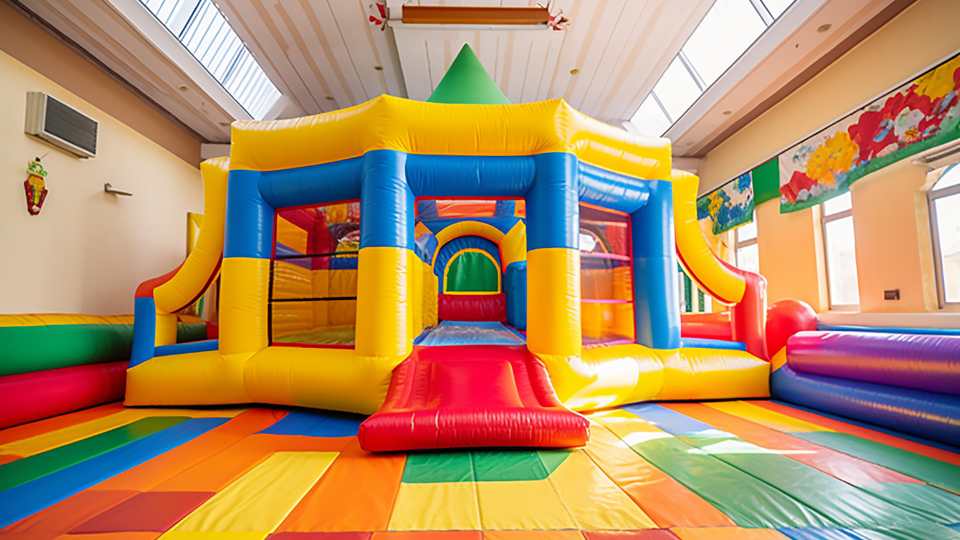
Types of Bounce Houses and Other Equipment
Understanding the various types of bounce houses and related equipment is crucial for tailoring offerings to meet customer demand, particularly in light of seasonal fluctuations. From inflatable castles to obstacle courses, each design serves distinct functions for different types of events, thereby enhancing the overall party experience.
For example, inflatable slides provide an exhilarating option for thrill-seekers, while themed bounce houses evoke joy among younger children.
When selecting the appropriate equipment, it is imperative to consider factors such as the age group of participants, the theme of the event, and the available space. A princess castle may be an ideal addition for a birthday celebration, whereas a sports-themed bounce house could elevate a community event.
By comprehending these nuances, party planners can ensure that the selected inflatable equipment resonates with the target audience, ultimately making the event both memorable and engaging.
Recommended Equipment:
|
Inflatable Type |
Estimated Cost |
Description |
|---|---|---|
|
Standard Bounce House |
$2,000 – $3,000 |
Basic inflatable for children |
|
Combo Unit |
$3,000 – $5,000 |
Bounce house with slide |
|
Water Slide |
$3,500 – $6,000 |
Inflatable slide for summer events |
|
Safety Equipment |
$500 |
Anchors, mats, cleaning supplies |
Supplies and Maintenance
Effective supply management and equipment maintenance are essential for ensuring the safety and longevity of inflatable rentals within a bounce house business. Adhering to safety regulations and maintaining an organized inventory can significantly enhance the user experience while minimizing operational disruptions.
This necessitates routine inspections of equipment for signs of wear and tear, along with the implementation of comprehensive cleaning protocols after each use to mitigate hygiene concerns. Regular safety checks should be conducted to ensure that all inflatable units comply with industry standards, enabling operators to proactively address any potential hazards.
Effective inventory tracking involves utilizing a system that alerts staff to low stock levels for essential supplies, ensuring that nothing is overlooked. By prioritizing these best practices, businesses can cultivate a safer environment, extend the lifespan of their equipment, and ultimately provide a more enjoyable experience for their customers.
Marketing and Advertising Strategies
Implementing effective marketing and advertising strategies is essential for a bounce house business to establish a robust online presence, utilize social media platforms, and engage in local advertising.
These initiatives not only attract new customers but also promote customer retention and brand loyalty in a competitive marketplace.
Target Audience and Effective Marketing Techniques
Identifying the target audience is essential for the success of a bounce house business, as it informs the selection of effective marketing strategies tailored to specific customer demographics. A comprehensive understanding of the preferences and needs of various groups enables businesses to develop targeted marketing campaigns that resonate with potential clients.
To effectively identify this audience, conducting a demographic analysis is imperative; this involves gathering data on age, income levels, and geographic locations. Events such as birthday parties, community festivals, and school functions present excellent opportunities for businesses to showcase their offerings, catering specifically to families seeking entertainment.
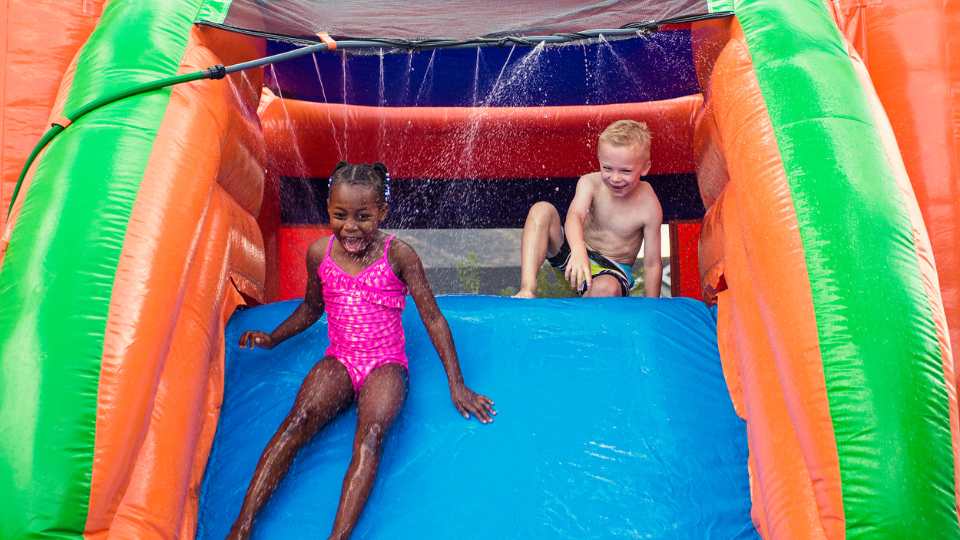
By exploring various event themes—such as seasonal celebrations or sports tournaments—businesses can refine their services and marketing strategies. Additionally, leveraging social media platforms and local community boards can significantly enhance visibility and engagement, allowing the bounce house enterprise to interact directly with interested clients and families, thereby fostering a loyal customer base.
Managing Finances
Effective financial management is critical for the profitability and sustainability of a bounce house business. It encompasses various aspects such as budgeting, pricing strategy, and cash flow management.
A thorough understanding of profit margins and diligent monitoring of financial performance are essential for making informed business decisions.
Budgeting and Pricing
Developing a comprehensive budgeting and pricing strategy is essential for the financial stability of a bounce house business, as it directly affects operational costs and overall profitability. Financial projections informed by thorough market research can facilitate the establishment of competitive yet profitable rental pricing.
A detailed understanding of the components of this strategy necessitates the analysis of various operational expenses, including equipment maintenance, labor costs, and insurance. By meticulously evaluating these costs, a business can accurately determine their influence on pricing decisions.
The implementation of competitive analysis methods enables the assessment of rival pricing structures, ensuring that the business remains attractive to customers while maintaining a sustainable profit margin. Additionally, the integration of robust financial projections aids in anticipating market trends and aligning pricing with potential demand fluctuations, ultimately promoting a responsive approach to the evolving landscape of the bounce house rental industry.
Sample Pricing Table:
|
Inflatable Type |
Base Price (4 Hours) |
Additional Hourly Rate |
Delivery Fee |
|---|---|---|---|
|
Standard Bounce House |
$200 |
$50 |
$30 |
|
Combo Unit |
$250 |
$60 |
$30 |
|
Water Slide |
$300 |
$70 |
$40 |
Bookkeeping and Tax Considerations
Proper bookkeeping and a comprehensive understanding of tax considerations are essential for the long-term success of a bounce house business. These practices ensure compliance with financial regulations and facilitate effective financial management.
By maintaining accurate records and proactively planning for tax obligations, business owners can enhance cash flow management and mitigate potential challenges.
Implementing best practices in bookkeeping is imperative. This includes regularly updating financial records and retaining receipts for all transactions.
Such diligence not only assists in tracking income and expenses but also prepares the business for potential audits.
Awareness of tax deadlines is critical, as failure to meet these deadlines can result in penalties. Business owners should also familiarize themselves with industry-specific deductions, such as maintenance costs and insurance.
Moreover, adherence to local regulations is vital, as it helps avoid fines and ensures smooth operations, enabling the business to thrive in a competitive market.
Challenges and Solutions
While starting a bounce house business can be rewarding, it also comes with challenges:
Common Challenges:
- Seasonality: Demand may fluctuate based on seasons or weather conditions.
- Solution: Diversify offerings by including indoor rentals or other party supplies during off-seasons.
- Insurance Costs: Liability insurance can be expensive but is necessary for protection against accidents.
- Solution: Shop around for competitive rates or consider joining industry associations that offer group insurance discounts.
- Maintenance of Equipment: Regular maintenance is crucial but can be time-consuming.
- Solution: Schedule routine inspections and cleanings after each rental to keep equipment in top condition.
Financial Considerations
Starting any business requires careful financial planning:
Initial Investment Breakdown:
|
Expense Category |
Estimated Cost |
|---|---|
|
Equipment Purchase |
$10,000 – $20,000 |
|
Licensing & Permits |
$500 – $1,500 |
|
Insurance |
$1,000 – $2,500 |
|
Marketing |
$500 – $2,000 |
|
Website Development |
$500 – $3,000 |
Revenue Projections
Your revenue will largely depend on pricing strategy and demand fluctuations throughout the year:
Example Revenue Projection:
Assuming you rent out two standard bounce houses at an average price of $200 each on weekends (8 weekends per month):
Monthly Revenue=Number of Rentals×Price per Rental×Number of Weekends
=2×200×8=$3,200
=2×200×8=$3,200
This projection doesn’t account for additional rentals during weekdays or special events but provides a basic framework for potential income.
Bottom Line
In conclusion, learning how to start a bounce house business can lead to a fun and rewarding entrepreneurial journey. By conducting market research, creating a solid business plan, and understanding legal requirements, you can set yourself up for success.
With the right marketing strategies and financial management, your bounce house business can thrive and bring joy to many events. Embrace this exciting opportunity and make your dream a reality!
Read Also: How to Start a Cabin Rental Business
Read Also: How to Start a Business in Upscale Portable Bathrooms
Read Also: How Much Does it Cost to Start a Septic Business
Read Also: How to Start a Bamboo Clothing Business
Frequently Asked Questions
What is a bounce house business?
A bounce house business is a company that provides inflatable bounce houses and other party rentals for events, such as birthday parties, carnivals, and corporate gatherings.
How do I start a bounce house business?
To start a bounce house business, you will need to research the market, create a business plan, obtain necessary licenses and permits, purchase or rent equipment, and establish a strong marketing strategy.
Do I need any special skills or qualifications to start a bounce house business?
No, you do not need any special skills or qualifications to start a bounce house business. However, having experience in event planning, customer service, or small business management can be beneficial.
What equipment do I need to start a bounce house business?
The main piece of equipment you will need is inflatable bounce houses. Other necessary equipment may include generators, tarps, stakes, and a truck or trailer for transportation.
How much does it cost to start a bounce house business?
The cost to start a bounce house business can vary depending on factors such as equipment and marketing expenses. However, on average, it can cost anywhere from $10,000 to $50,000.
Are there any legal considerations for starting a bounce house business?
Yes, there are several legal considerations when starting a bounce house business. These may include obtaining liability insurance, complying with safety regulations, and obtaining necessary licenses and permits.



